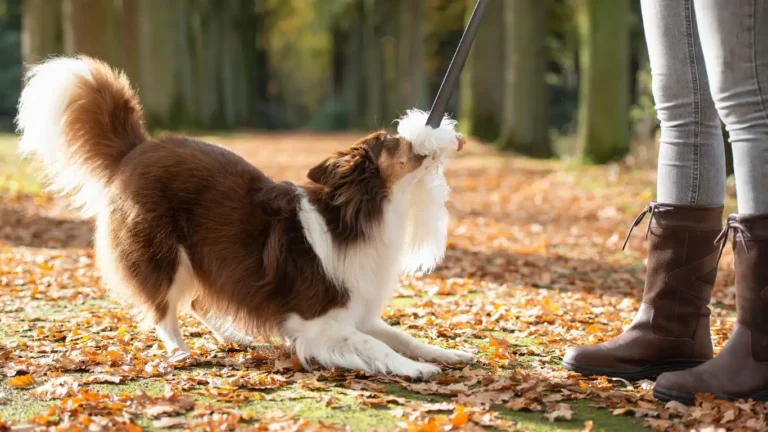How to Stop a Dog from Digging in the Garden: Easy Solutions That Work
If you’ve ever found your garden looking like a freshly dug archaeological site, you’re not alone. As a Veterinary Technician who’s spent years specializing in nutrition and overall pet care, I’ve seen firsthand how digging can be both a natural instinct and a frustrating habit for dog owners. So, if you’re wondering how to stop a dog from digging in the garden, you’re in the right place. Digging isn’t just about bad behavior—it’s a way for dogs to express themselves, cool off, or simply burn off excess energy. The good news? With a little understanding and the right approach, you can protect your garden while keeping your furry friend happy and healthy.
Why Do Dogs Dig in the Garden?

Before diving into solutions, it’s crucial to understand why dogs dig. The reasons vary widely and knowing your dog’s motivation can help tailor the approach:
Natural Instinct and Ancestry
Digging is an instinctive behavior inherited from wild ancestors. Dogs’ relatives used digging to create cool, safe spaces or to hunt small animals hiding underground. If your pup spends a lot of time outdoors, especially in warm weather, they might be trying to make a comfy “den.”
Boredom and Excess Energy
One of the most common reasons for digging is boredom. Dogs with pent-up energy and not enough mental or physical stimulation often turn to digging as a fun outlet. I’ve seen clients with high-energy breeds like Terriers or Huskies struggle with this, and the garden quickly becomes their favorite playground.
Stress and Anxiety
Believe it or not, digging can be a coping mechanism for stress or anxiety. Dogs experiencing separation anxiety or feeling neglected may dig to self-soothe or to try to escape the situation. It’s a subtle cry for help that can be overlooked if you’re only focused on the “damage.”
Attention-Seeking Behavior
Sometimes, digging is simply a way to get your attention—negative or positive. If your dog notices that digging sends you running out with a scolding or a laugh, they may keep doing it to stay in the spotlight. I’ve noticed that changing your reaction can be surprisingly effective.
How to Stop a Dog from Digging in the Garden: Practical Tips That Work

Once you’ve got a handle on why your dog digs, you can start working on solutions. Here are some practical, tried-and-true strategies that I’ve recommended to pet parents over the years.
Provide Plenty of Physical and Mental Exercise
This might seem obvious, but it can’t be overstated. A tired dog is a well-behaved dog. Long walks, play sessions, and mental challenges like puzzle toys help burn off the energy that otherwise gets redirected into digging.
- Daily walks tailored to your dog’s breed and age
- Interactive games like fetch, tug-of-war, or scent work
- Training sessions that engage their mind and body
Create a Designated Digging Area
Rather than trying to eliminate digging entirely—which can be unrealistic—consider giving your dog their own spot to dig freely. This can satisfy their natural urge without wrecking the rest of your garden.
- Pick a spot with loose soil or sand.
- Encourage your dog to dig there by hiding toys or treats.
- Praise and reward them whenever they use the designated area.
In my experience, this redirection technique works wonders, especially with dogs that just need an outlet for their digging drive.
Use Barriers and Deterrents to Protect Your Garden

One of the easiest ways to stop a dog from digging in the garden is to make digging in unwanted areas inconvenient or less appealing. I’ve often recommended a few barrier and deterrent methods to clients who want to save their flower beds or veggie patches:
- Physical barriers: Installing chicken wire or garden fencing just beneath the soil surface can prevent your dog’s paws from reaching the dirt. It’s subtle but effective.
- Natural deterrents: Sprinkling citrus peels, cayenne pepper, or vinegar-soaked cloths around your plants can discourage digging because dogs dislike those smells. I always caution pet owners to avoid anything that could harm their dog, so stay clear of anything toxic or irritating.
- Motion-activated sprinklers or ultrasonic devices: These tools can surprise your dog and interrupt digging behavior without causing harm. It’s a bit of a “startle and learn” approach that works well for some dogs.
Keep in mind, these deterrents work best when combined with positive training so your dog learns there are better places to dig and explore.
Addressing Anxiety and Boredom Through Enrichment

As I mentioned earlier, digging often signals a deeper emotional or physical need. When boredom or anxiety is the root cause, enrichment activities are your best friend. Here’s what I usually suggest:
- Rotate toys regularly: Dogs get bored of the same old chew toy. Changing things up keeps them interested and mentally stimulated.
- Interactive feeders: Slow-feeding puzzle bowls or treat-dispensing toys engage your dog’s brain during mealtime and reduce anxiety.
- Social time: Dogs thrive on companionship, whether that’s from humans or other dogs. Playdates or training classes can burn energy and curb stress-driven digging.
Personally, I’ve found that a few minutes of daily puzzle play can turn a frantic digger into a calm garden visitor.
Training Tips to Stop Digging in the Garden

Training your dog to stop digging takes patience, consistency, and clear communication. Here’s a simple approach I’ve recommended for years that blends well with any of the strategies above:
Catch Them in the Act and Redirect
The moment you see your dog starting to dig, gently interrupt them. Instead of scolding—which can create anxiety—redirect their attention to a positive activity like fetching a ball or heading to their designated digging area. Praise them enthusiastically when they switch gears.
Use Commands and Rewards
Teaching a command like “leave it” or “no dig” can be a game-changer. Use treats or toys to reward your dog every time they obey. Over time, they’ll start associating these commands with stopping the digging behavior.
Consistency is Key
One of the biggest challenges owners face is inconsistency. Dogs learn best when everyone in the household reacts the same way to digging. Make sure everyone knows the rules and sticks to them—no exceptions. Believe me, dogs are masters at exploiting loopholes!
Nutrition and Its Surprising Role in Behavior

As a Veterinary Technician with a nutrition background, I can’t skip over the role diet plays in behavior. While digging is mainly a behavioral issue, what your dog eats can influence their overall mood, energy, and even anxiety levels. A poorly balanced diet may leave your dog restless or overly energetic, which can worsen digging habits.
Feeding for Calm and Focus
In my experience, diets rich in omega-3 fatty acids, balanced proteins, and essential vitamins support better brain function and calmer behavior. I always encourage clients to consult with their vet or a pet nutritionist to fine-tune their dog’s diet.
Hydration Matters Too
Never underestimate the importance of hydration. Sometimes dogs dig to create a cool spot because they’re uncomfortable or overheated. Keeping fresh water available and shaded areas in your yard can reduce this urge.
Long-Term Strategies to Prevent Digging in Your Garden

Stopping a dog from digging in the garden isn’t always about quick fixes—sometimes it’s about adopting a long-term mindset. Over the years, working closely with pet owners, I’ve learned that patience and consistency are the ultimate keys to success. Here are some strategies that go beyond the basics and help build a lasting solution.
Build a Routine That Includes Outdoor Time and Play
Dogs thrive on routine. When they know exactly when it’s time to go out, play, eat, and rest, they’re less likely to fill that uncertainty with unwanted behaviors like digging. Set aside dedicated times each day for exercise and play. Trust me, it makes a huge difference when your dog’s energy is channeled positively.
Invest Time in Training and Positive Reinforcement
Consistency in training creates a clear understanding of boundaries for your dog. Using positive reinforcement rather than punishment keeps your dog motivated and eager to learn. From my experience as a Veterinary Technician, rewarding good behavior—not just correcting the bad—is essential for building trust and effective communication.
- Use treats, praise, or playtime as rewards.
- Be patient—change takes time, especially with habits rooted in instinct.
- Keep training sessions short but frequent to maintain your dog’s interest.
Make Your Garden Less Tempting
If your garden is a magnet for your dog’s digging urges, think about how to change its appeal. Adding mulch or gravel to flower beds, or planting dense shrubs, can discourage digging simply because it’s less fun or comfortable for your dog. Personally, I’ve seen clients successfully use ground covers like rosemary or lavender—they smell great to us but tend to repel curious paws!
Monitor Your Dog’s Health Regularly
Sometimes digging can signal an underlying health issue. From parasites to skin irritations or even pain, dogs may dig to find relief or because they’re uncomfortable. As a vet tech, I always remind pet parents to keep up with regular vet check-ups and bring up any sudden or persistent digging behavior.
When to Seek Professional Help

Despite your best efforts, some digging behaviors are tough to break alone. Here’s when it might be time to reach out:
Persistent Digging Despite Training
If your dog continues to dig despite consistent training and enrichment, it may indicate deeper behavioral issues that require expert intervention.
Signs of Anxiety or Stress
Excessive digging combined with other anxiety symptoms—like excessive barking, destructive chewing, or pacing—calls for a professional evaluation.
Health Concerns
If you suspect that pain, allergies, or other medical problems are contributing to your dog’s digging, a thorough veterinary examination is essential.
Professionals such as certified dog trainers, behaviorists, or your veterinarian can offer tailored guidance that aligns with your dog’s specific needs.
References
Disclaimer
The information provided here is based on my experience as a Veterinary Technician and pet nutrition specialist. However, it is intended for educational purposes and should not replace professional veterinary advice. Always consult with your veterinarian or a certified animal behaviorist for concerns specific to your dog’s health and behavior.






